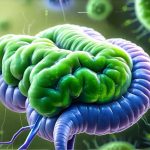The gut microbiome – the vast community of trillions of microorganisms residing in our digestive tract – plays an incredibly important role in overall health. Far beyond simply aiding digestion, this complex ecosystem influences everything from immune function and mental wellbeing to nutrient absorption and even chronic disease risk. When this delicate balance is disrupted, it can lead to a wide range of symptoms that may not immediately seem connected to the gut. Understanding the signs of an imbalanced gut microbiome is the first step toward supporting your digestive health and overall wellness.
Maintaining a healthy gut requires a harmonious relationship between beneficial bacteria, fungi, viruses, and other microbes. Factors like diet, stress levels, antibiotic use, and environmental toxins can all significantly impact this balance, potentially leading to dysbiosis – an imbalance in the composition of the gut microbiome. Recognizing potential indicators of dysbiosis allows for proactive lifestyle adjustments that may support a healthier gut environment.
Understanding Gut Imbalance & Its Impact
Gut imbalances aren’t always dramatic; they often present as subtle changes in how you feel. The symptoms can vary greatly from person to person, depending on the specific microbes involved and the extent of the imbalance. It’s crucial to remember that these signs don’t necessarily confirm a gut imbalance, but rather suggest it might be worth exploring further with a healthcare professional.
A disturbed microbiome often affects more than just digestion; systemic effects can ripple throughout the body due to the gut-brain axis – the bidirectional communication pathway between your digestive system and brain. This connection highlights why gut health is so intrinsically linked to mental and emotional wellbeing.
Common Signs of Dysbiosis
Digestive Distress
Perhaps the most obvious sign of an imbalanced gut microbiome is digestive upset. This can manifest in several ways, including bloating, gas, constipation, diarrhea, or a combination thereof. Irritable Bowel Syndrome (IBS) symptoms are often linked to gut dysbiosis, though it’s important to note that IBS has many potential causes. Changes in stool consistency or frequency should also be noted.
The root cause of these issues is often related to the inability of beneficial bacteria to properly process food and regulate bowel movements. A lack of microbial diversity can lead to fermentation of undigested carbohydrates, resulting in excessive gas production and bloating. Conversely, an imbalance can impair gut motility, leading to constipation or diarrhea.
Mental Health & Mood Changes
The gut-brain axis plays a significant role in mood regulation. An imbalanced gut microbiome can impact neurotransmitter production – specifically serotonin, dopamine, and GABA – which are crucial for mental wellbeing. This disruption has been linked to increased anxiety, depression, brain fog, and difficulty concentrating.
Research suggests that certain gut bacteria can directly influence the hypothalamic-pituitary-adrenal (HPA) axis, the body’s stress response system. Dysbiosis may therefore contribute to heightened stress levels and a reduced ability to cope with stressors. The connection between gut health and mental health is increasingly recognized as a critical aspect of overall wellness.
Skin Issues & Immune Function
A significant portion of the immune system resides in the gut, making it a primary battleground for maintaining health. When the gut microbiome is imbalanced, it can lead to increased intestinal permeability – often referred to as “leaky gut.” This allows undigested food particles and toxins to enter the bloodstream, triggering an inflammatory response that can manifest in various ways, including skin problems like eczema, acne, or psoriasis.
Chronic inflammation associated with dysbiosis also weakens immune function overall, making individuals more susceptible to infections and autoimmune diseases. The microbiome helps “train” the immune system to distinguish between friend and foe; when it’s out of balance, this training process is disrupted.


















